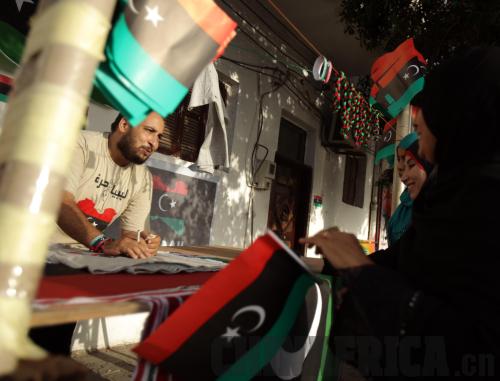|

HOPEFUL:Libyans return to the streets in Tripoli as stability returns XINHUA/AFP
AU self evaluation
First, the AU must enhance its decisiveness and the input and output processes associated with that. For example the Libyan situation began to deteriorate when unarmed and peaceful protesters were killed. During the funeral procession more civilians were also killed. At that juncture there was no intervention from the AU or any statements condemning the Gaddafi regime's actions. The situation further deteriorated until it reached the UN Security Council and the subsequent passing of the 1973 Resolution. The decision passed by the AU's Peace and Security Council in April 2011 to call for peace talks came too late, as the battleground had intensified and positions were already too entrenched. It may have been a case of too little too late a decision by the AU.
Second, the AU must build a robust international diplomacy in the wake of increased global geo-political pressure. When the UN Security Council went in to vote for Resolution 1973, the AU did not seem to hold a common position to rally the African countries that were part of the Security Council infrastructure at that time. This led to African countries taking positions based on their individual foreign policy frameworks but without taking any possible leads from the AU. Not that the AU needs to dictate policy fundamentals to member countries sitting in such bodies, but there was no evident link which should have been material in trying to promote a wider continental diplomatic objective. The Arab League on the other hand was very emphatic and clear about its position on the resolution and so was the Gulf Corporation Council (GCC).
Third, the AU will need to focus on gradually building toward a solid ASF. The architecture of global political interventions is now shaped by the capacity to build a coalesced military front, which can then be used at "home" to advance the principles and ideals of the common body. This will assist in holding member countries to account as well as thwart any disarranged foreign interferences. The reason why NATO became so prominent in Libya was due to its capacity to militarily intervene.
Fourth, the AU must strengthen its institutional mechanisms by ensuring that bodies such as the Court of Justice and the Pan African Parliament are fully established and operational. The Court of Justice will assist Africa in investing in its own justice mechanism, which will ensure credibility of the AU, as it becomes a prosecuting body. This will cut out any inferred foreign interference, which has historically been justified on the AU's lack of such capacity. The Pan African Parliament must not be constituted just as a forum but must ultimately become a full parliament. This will ensure a direct representation of African citizens at the very core of the AU's identity and functionality.
As highlighted earlier, the relationship between the AU and NATO seems to have slid into a low ebb. If the AU does not respond by focusing on internal reinforcements in order to purge the scourge of possibilities of foreign interference in Africa, then its reputation will falter and Africa will become a perennial breeding ground for the promulgation of other global political experiments and interests.
(The author is executive director of the African Reform Institute, Harare, Zimbabwe) |